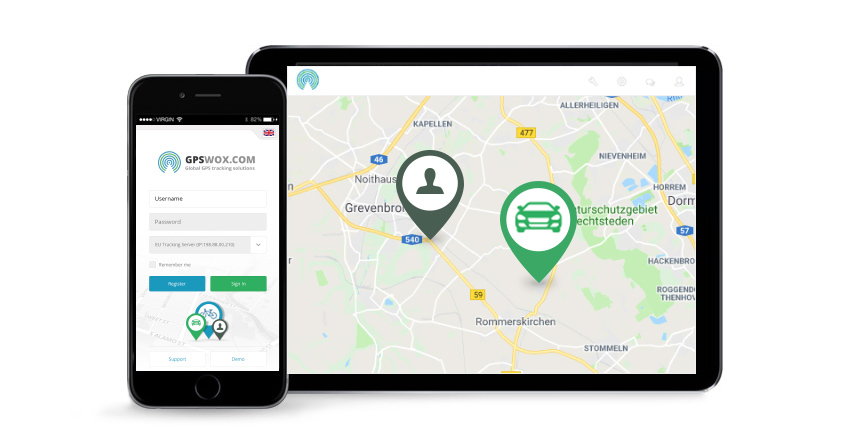Advanced GPS Tracking Systems: Maintaining Your Assets Protect
Advanced GPS Tracking Systems: Maintaining Your Assets Protect
Blog Article
Browsing the Future of GPS Monitoring: Developments, Obstacles, and Opportunities Ahead
As we stand at the crossroads of technical developments and social ramifications, the landscape of GPS monitoring is positioned for a transformative journey ahead. With wonderful innovation comes great obligation, as data privacy issues impend big and security challenges in GPS tracking raising relevant inquiries regarding guarding delicate information.
Advancement of GPS Technology
The Evolution of GPS Technology has been noted by significant innovations in accuracy, protection, and efficiency over the years. Initially established for armed forces objectives, GPS modern technology has evolved to come to be an ubiquitous device in various sectors, including transportation, logistics, farming, and personal navigation. Early GPS systems were identified by restricted protection, lower accuracy, and bulkier equipment requirements. With ongoing technical developments, GPS has actually transitioned to more accurate and effective systems that use international coverage and enhanced precision.
One trick milestone in the advancement of GPS modern technology was the growth of Careful Accessibility (SA) in the 1990s, which purposefully weakened the accuracy of civilian GPS signals. The discontinuation of SA in 2000 dramatically enhanced GPS accuracy for noncombatant users. Succeeding improvements, such as the release of extra satellite constellations like Galileo and BeiDou, have better enhanced GPS coverage and accuracy, making it an indispensable tool in daily life. As GPS innovation remains to evolve, we can anticipate additional renovations in efficiency, coverage, and accuracy, opening brand-new opportunities for development and applications throughout numerous industries.
Real-Time Tracking Innovations
Building on the advancements in GPS technology that have actually changed accuracy and insurance coverage, real-time tracking has actually become an essential location of innovation with profound effects across various fields. Real-time tracking improvements enable companies and companies to check properties, workers, and vehicles instantaneously, giving important understandings for decision-making processes - gps tracking. By leveraging real-time data, companies can improve functional effectiveness, boost client service, and ensure the safety and protection of their properties
Among the essential improvements in real-time tracking is the assimilation of man-made intelligence and maker learning algorithms, which make it possible for anticipating analytics and anomaly detection. These capabilities enable proactive upkeep scheduling, course optimization, and threat reduction strategies. The development of real-time monitoring systems has led to the advancement of mobile applications and personalized dashboards, empowering individuals to accessibility important info anytime, anywhere.
Information Personal Privacy Concerns

Data personal privacy problems incorporate various aspects, consisting of the storage space, sharing, and retention of area information. Organizations need to carry out robust safety and security procedures to shield GPS tracking information from cyber hazards and information breaches. Clear plans regarding data collection practices and the function of monitoring are necessary to build trust with consumers and make sure conformity with information protection laws.

Safety Challenges in GPS Tracking
Attending to information personal privacy worries in GPS monitoring is elaborately connected to alleviating the protection tests that occur from possible susceptabilities in the technology. One of the primary safety difficulties in GPS tracking is the risk of unauthorized accessibility to delicate area information.
An additional safety and security challenge is the potential for jamming or spoofing general practitioner signals. By relaying incorrect signals or interfering with legit ones, malicious actors can trick GPS receivers and adjust location data. This postures threats not only for specific customers but likewise for governmental and military applications that count on specific positioning details. Implementing robust encryption, verification measures, and signal confirmation protocols are crucial actions in resolving these security challenges in GPS tracking.
Emerging Opportunities in the Sector
The growing field of GPS monitoring look here innovation offers a myriad of appealing chances for sector development and advancement. One crucial opportunity exists in the expansion of GPS tracking applications past traditional fields. Industries such as logistics, transportation, and fleet monitoring have actually been very early adopters of GPS innovation. Arising chances are now occurring in locations like healthcare, farming, and environmental surveillance. For instance, GPS tracking can change client care by enabling remote surveillance of essential signs and guaranteeing timely clinical assistance. In farming, GPS technology can optimize plant management practices and boost general yield. Environmental surveillance can profit from GPS tracking by making it possible for real-time information collection for environment study and conservation initiatives.
An additional significant opportunity in the GPS tracking sector is the integration of advanced analytics and expert system. By leveraging these innovations, companies can acquire valuable insights from GPS data to boost operational efficiency, improve decision-making procedures, and offer individualized services to customers. In addition, the enhancing demand for linked tools and IoT services provides a ripe opportunity for GPS tracking companies to broaden their offerings and produce cutting-edge solutions that deal with an extra connected world. By taking advantage of on these emerging chances, GPS monitoring business can place themselves for continual growth and success in the dynamic landscape of the industry.
Conclusion
In final thought, the future of General practitioner monitoring is noted by continual development and development in modern technology. As the sector relocates ahead, navigating these difficulties will certainly be crucial to guarantee the continued development and success of General practitioner tracking technology.
With great technology comes fantastic obligation, as data privacy problems loom big and protection difficulties in GPS monitoring raise essential inquiries regarding safeguarding sensitive info.With the rapid proliferation of General practitioner tracking modern technology in numerous industries, dealing reference with data personal privacy problems has become an important imperative for both services and customers alike. The collection of area data with GPS monitoring raises substantial privacy problems, as it enables the tracking of people' habits and activities. Businesses utilizing General practitioner tracking must prioritize protecting this data to stop unapproved accessibility or misuse that could jeopardize people' personal privacy legal rights.
Services need to apply robust safety steps to safeguard GPS tracking data from cyber dangers and data breaches.
Report this page